In the supermarket store, sunflower oil may be found among the many other types of cooking oils. You're not alone if you're unsure whether or not sunflower oil is healthy for you.
Because it includes linoleic and oleic acids, the oil provides a lot of advantages. However, it is abundant in omega-6 fatty acids, which are eaten in excess in the Western world, much like other vegetable oils.
So, is sunflower oil good for you? The simple answer is that it offers certain health benefits when taken in moderation or when applied to the skin, but it also has some disadvantages.
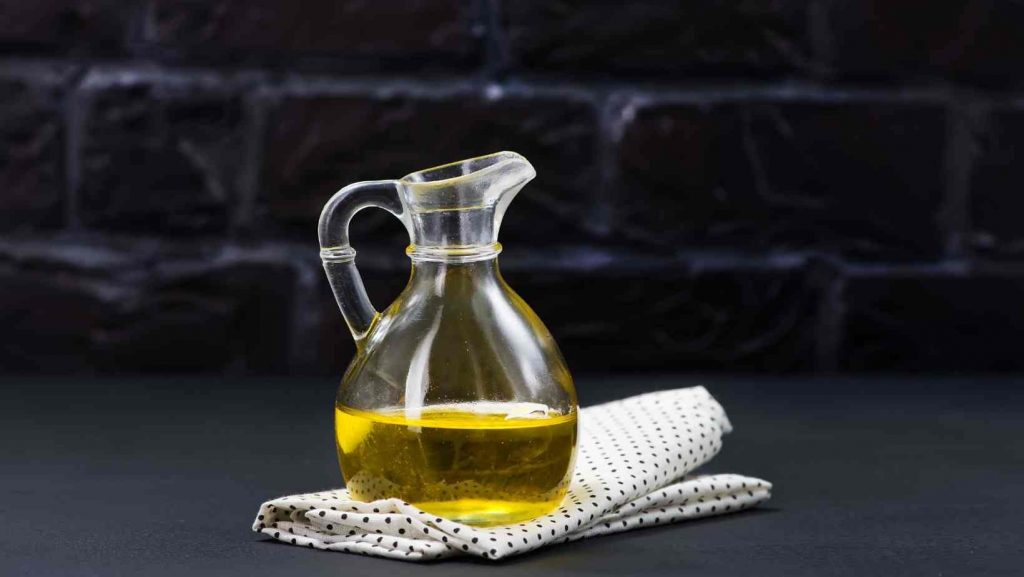
What Is Sunflower Oil and How Does It Work?
The sunflower plant, Helianthus annuus, produces sunflower oil. Sunflower seed oil is recognised as a healthy cooking oil since it contains minimal saturated fats, but there are a few things you should know about it.
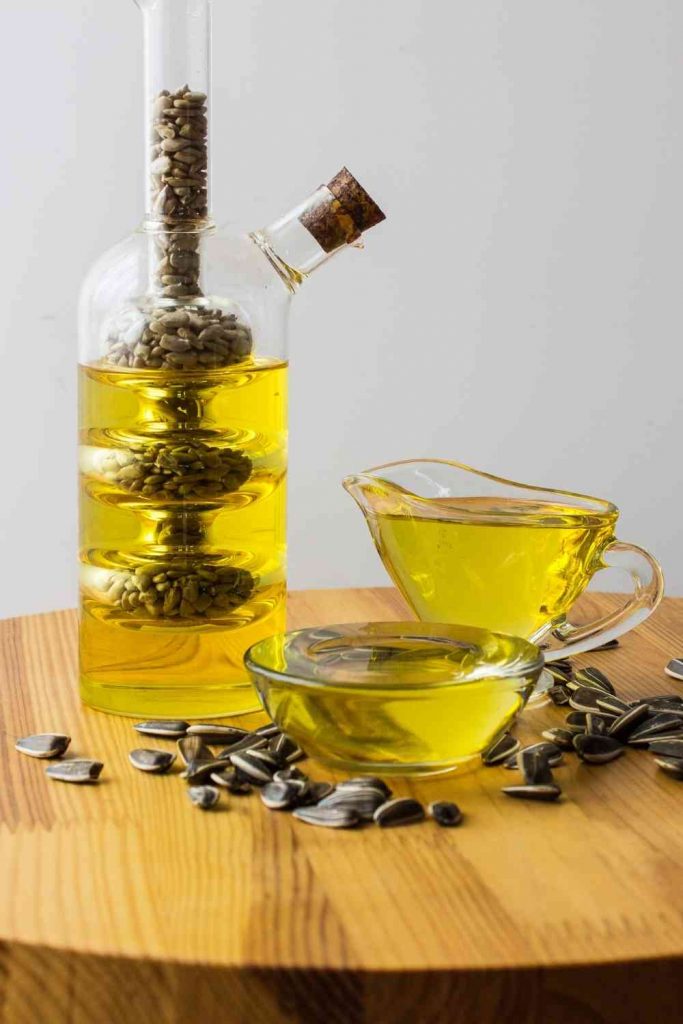
It includes linoleic and oleic acids, two fats that have been well studied for their possible health advantages and downsides. When heated over 180 degrees, sunflower oil may produce potentially dangerous chemicals, therefore it's not the healthiest cooking oil out there.
Types/Varieties
Sunflower oil comes in a variety of varieties, each with its own fatty acid profile. Here's how it works:
High Linoleic Acid: This variety contains 70% linoleic acid, 20% oleic acid, and 10% saturated fats. It's high in omega-6 fatty acids and liquid at room temperature, making it suitable for cooking at home.
Mid-Oleic and High-Oleic: These varieties include oleic acid and are considered healthier due to their omega-9 fatty acid concentration. The composition of mid-oleic sunflower oil is 65 percent oleic acid and 25% linoleic acid, with roughly 10% saturated fats. Sunflower oil with a high oleic content has roughly 80% oleic acid, 10% linoleic acid, and 10% saturated fats.
Because high stearic/high oleic sunflower oil is solid at room temperature (due to stearic acid), it's often used in ice creams, packaged goods, and industrial frying. Cosmetics, cleansers, candles, and other products commonly include stearic acid as a stabilising ingredient.
Linoleic acid is an omega-6 polyunsaturated fatty acid. This fat is necessary for human nutrition and serves as a source of energy for the body.
Linoleic acid-rich foods account for over 90% of dietary omega-6 fats, which are beneficial if consumed in moderation.
read also: Delicious High Protein Foods
Oleic acid is a monounsaturated omega-9 fatty acid present in both animal and vegetable lipids. Oleic acid is abundant in olive oil.
Consuming oleic acid instead of omega-6 fats has been shown to be better for your heart and general health.
Heat affects sunflower oil differently depending on the kind. Higher quantities of linoleic and oleic acid mean they stay liquid at room temperature and may be utilised in a variety of recipes.
Because those containing stearic acid, a saturated fat, remain solid at room temperature, they are employed in a variety of culinary applications.
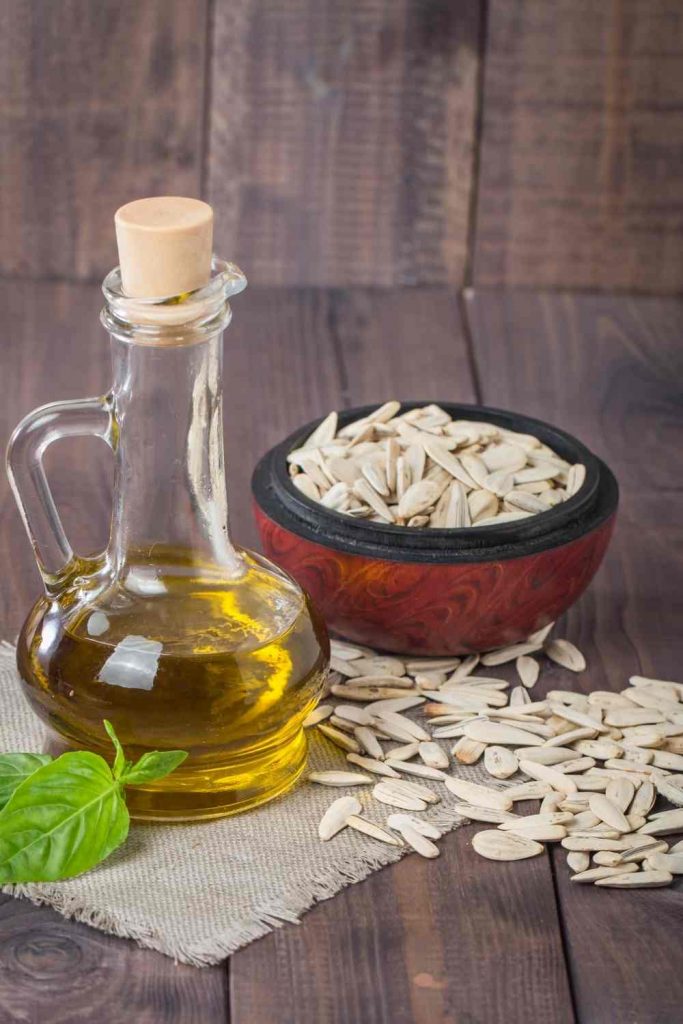
Nutritional Values of Sunflower Oil
According to the United States Department of Agriculture, one tablespoon of sunflower oil contains approximately:
- 120 calorie diet
- 5.6 milligrammes vitamin E(25 percent DV)
- 13.6 grammes fat
Furthermore, sunflower oil contains 86 percent monounsaturated fatty acids, ten percent saturated fatty acids and four percent polyunsaturated fatty acids.
Benefits/Uses
Jump to:
1. Vitamin E-dense
Vitamin E isomers have strong antioxidant properties and may minimise free radical damage and inflammation. According to studies examining the benefits of vitamin E, eating antioxidant foods helps to naturally decrease cell ageing, enhance immunity, and lower the risk of health problems including heart disease.
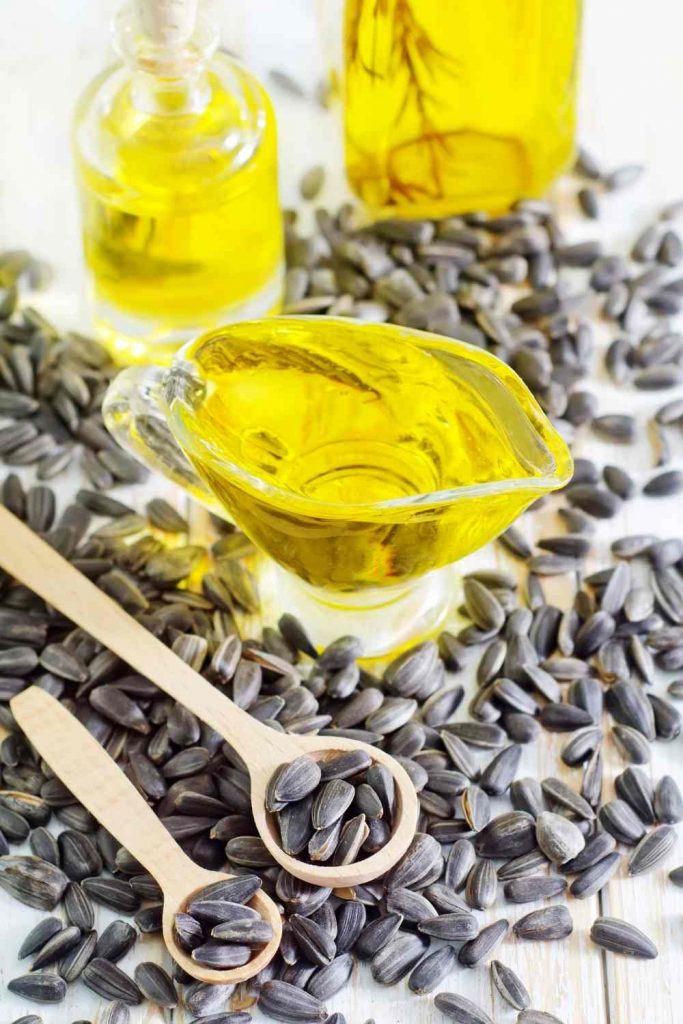
Vitamin E meals may boost physical endurance by reducing tiredness, improving blood circulation, and strengthening muscles because they help minimise oxidative stress in the body.
2. It has the potential to improve heart health
Consuming meals high in linoleic acid has been shown to lower LDL cholesterol and blood pressure, lowering your overall risk of cardiovascular disease. This is particularly true when you substitute meals high in saturated fats with omega-6 fatty acids like those found in sunflower oil.
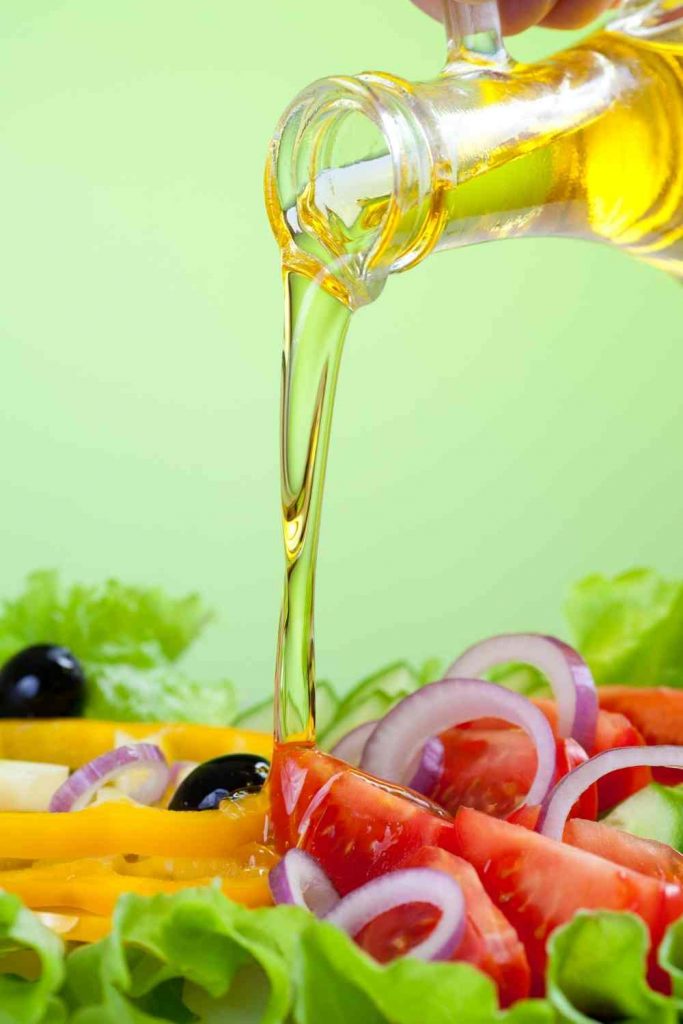
However, when it comes to heart health, studies believe that ingesting a 1:1 mix of omega-3 and omega-6 fatty acids is essential. Omega-6 toxicity may be an issue if consumed in excess.
3. Encourages the growth of healthy skin
Sunflower oil includes linoleic acid, oleic acid, and vitamin E, which helps to hydrate the skin, decrease inflammation, expedite wound healing, and increase suppleness. It functions as an emollient, protecting and hydrating your skin.
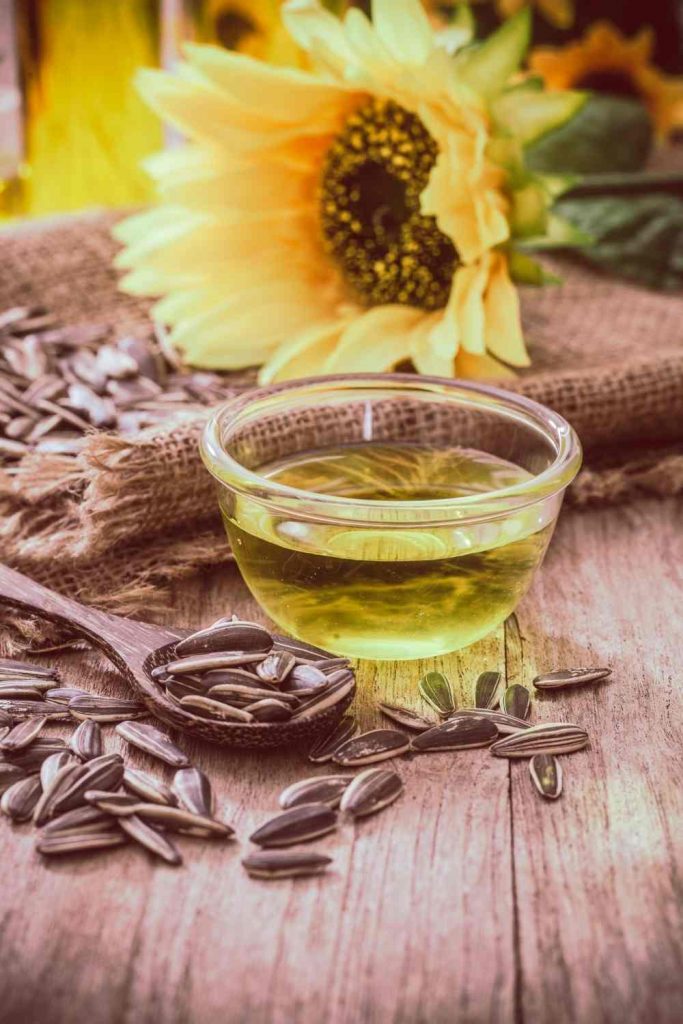
Because of its preventive, antioxidant, and anti-inflammatory properties, sunflower oil may help minimise skin damage. Its vitamin E concentration, according to studies, may help speed up cell regeneration, which might help reduce the appearance of scars, wrinkles, and acne.
4. Hair is nourished
Sunflower oil for hair hydrates nourishes, and even thickens hair. It contains antioxidant properties that help to protect your hair from environmental damage.
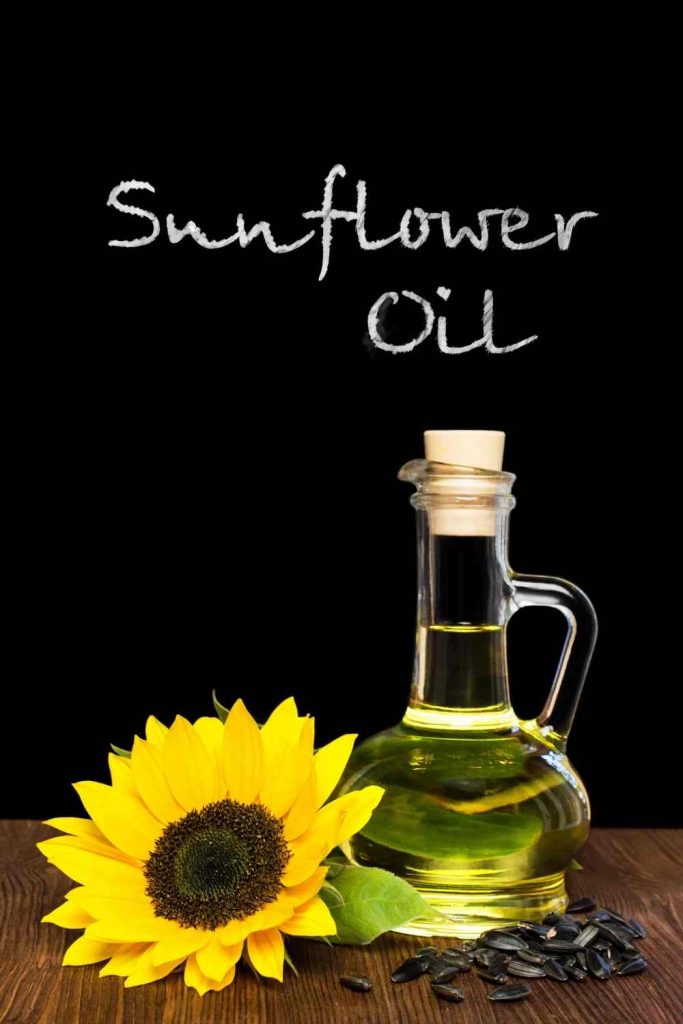
It also improves scalp circulation, provides moisture and gives your hair a healthier, more youthful appearance.
read also: How Much Protein Should You Eat Per Day?
According to one research, omega-6 fatty acids boost the expression of various factors involved in hair development, therefore oils rich in linoleic acid may help thicken hair.
5. Defends Against Infections
Both linoleic acid and oleic acid offer anti-inflammatory, immune-boosting, and infection-fighting properties, according to research.
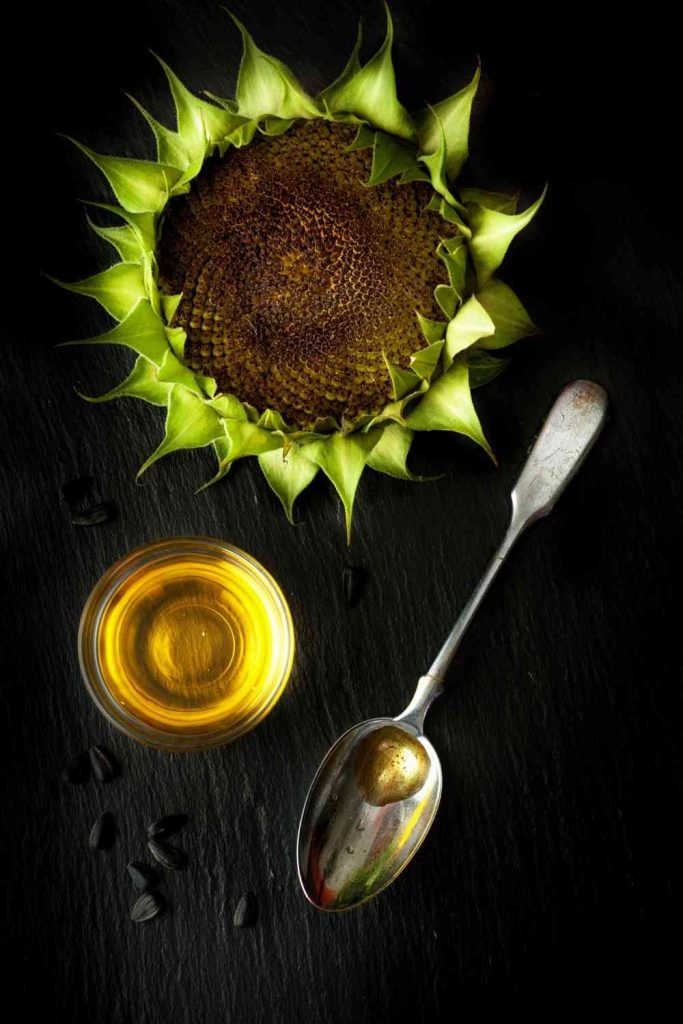
Oleic acid also has antibacterial characteristics, therefore it may be used to treat bacterial skin infections.
Side Effects and Risks
The omega-6 fatty acid concentration of sunflower oil and other vegetable oils is one of the key drawbacks. Despite the fact that these fats are essential for human health, most individuals eat far too many of them and far too little omega-3 fatty acids.
Excessive omega-6 intake may cause inflammation, weight gain, and cardiac problems.
Sunflower oil should not be heated to high temperatures (above 180 degrees Fahrenheit). Even though it has a higher smoke point, it is not the greatest oil for frying dishes since it may emit potentially harmful molecules (such as aldehydes) when fried at high temperatures.
Sunflower cooking oil is best used in dishes that demand moderate, low heat, such as stir-fries.
Alternatives that are good for you
Because sunflower oil is rich in linoleic acid (omega-6s) and does not react well at high temperatures, there are healthier options to consider, such as:
Olive oil: Olive oil and sunflower oil both contain oleic acid, depending on the variety. Oleic acid, a heart-healthy monounsaturated fatty acid, is abundant in all extra virgin, cold-pressed olive oils. Olive oil, on the other hand, is not suitable for high-temperature cooking. It's great poured over salads or as a dip.
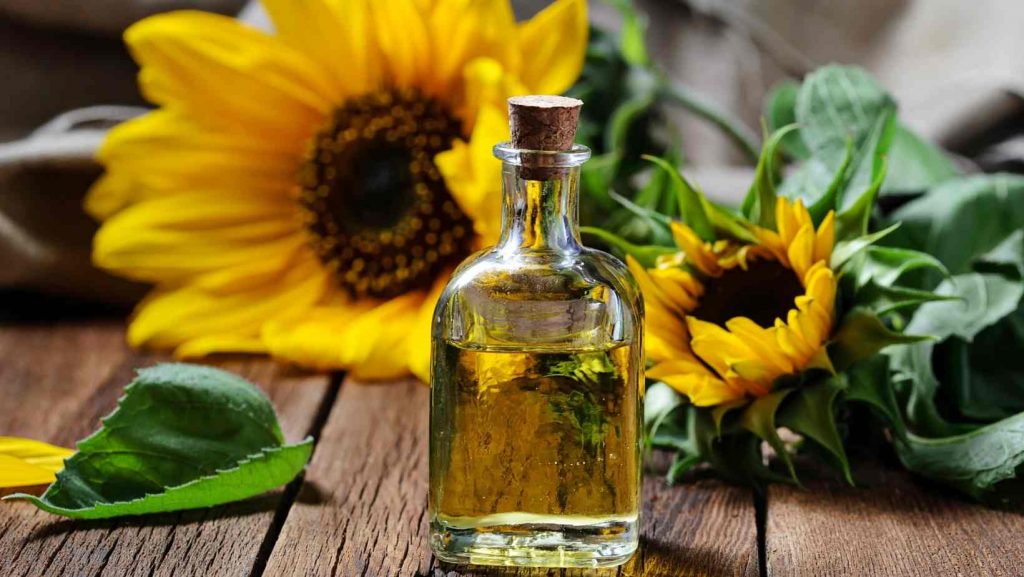
Avocado oil includes oleic and linoleic acids, much as sunflower seed oil. It also contains a lot of vitamin E. Avocado oil is not only one of the world's healthiest oils, but it also has a high smoke point of at least 400 degrees Fahrenheit.
read also: What Is Refined Sugar?
Coconut oil: Another healthy cooking option is coconut oil. It has higher stability than sunflower (and olive) oil and acts as an antibacterial and energy-boosting meal. Caprylic acid, lauric acid, and capric acid are all medium-chain fatty acids found in it. It's fantastic for baking, sautéing vegetables and meats, and it's also beneficial for your skin and hair.
Conclusion
Sunflower seed oil is obtained by pressing the seeds of the sunflower plant. It's typically regarded as a healthy cooking oil because of its low saturated fat content, however, there are certain disadvantages to consider.
What are the advantages of sunflower oil in terms of health? Sunflower oil has anti-inflammatory, antioxidant, skin-nourishing, and heart-protective properties.
Depending on the variety you choose, the oil is high in linoleic and/or oleic acid. It's OK to sprinkle this oil over a salad or use it in a dip in moderation, as well as to use it on your skin and hair. Cooking with this oil, however, may result in the release of potentially hazardous chemicals.
Olive oil, avocado oil, and coconut oil are some healthier options that may be utilised in meals and topically.




